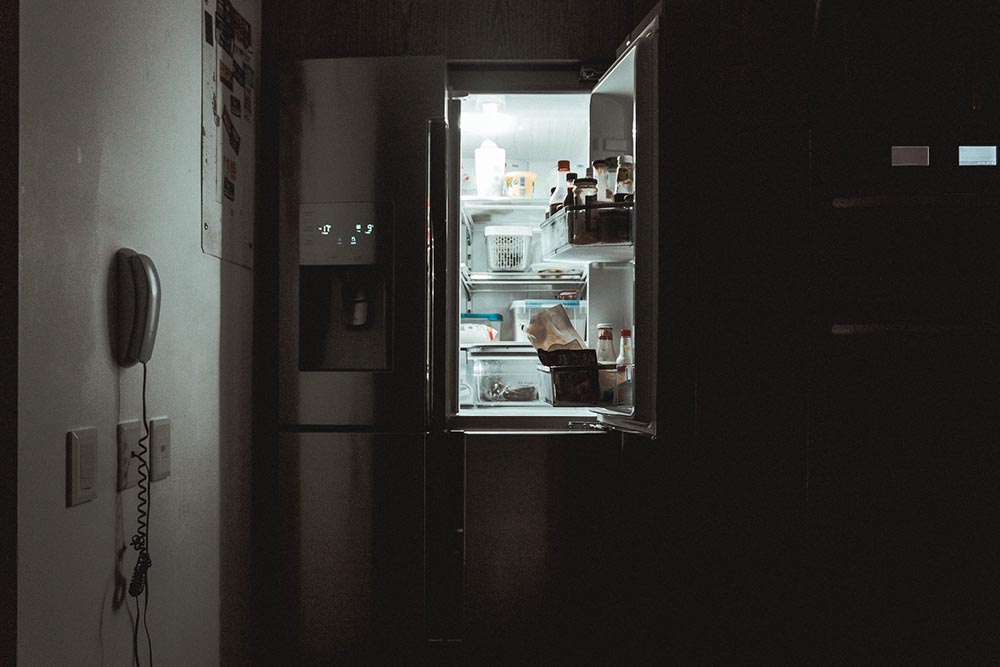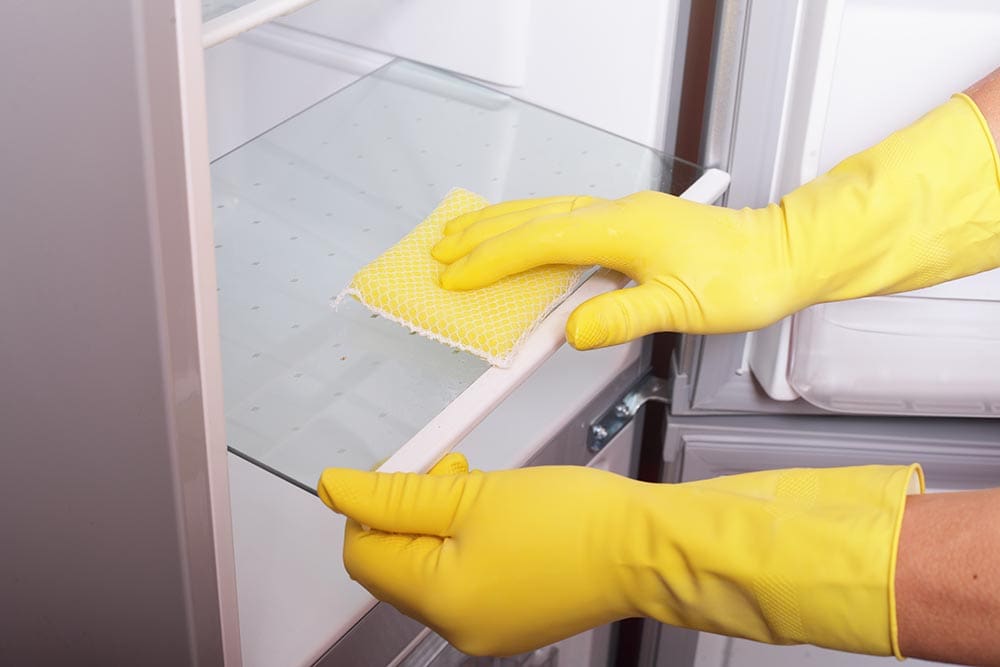How Often Should You Clean Your Fridge? Reasons, Facts, & FAQ
-
Codee Chessher
- Last updated:

Some parts of our homes require less attention and cleaning than others, but when was the last time you cleaned your fridge? The humble fridge is a high-traffic area that can take a lot of abuse, and it’s easy to let condiments and food residue build-up. To keep your fridge in the best shape possible, plan to clean it every 3–4 months.
Depending on how often you stock up on groceries, spill stuff, and cook, you could get away with much longer. A single person could get by cleaning their fridge twice a year with diligent spot cleaning in between, but families of four or more should be cleaning their fridge more often.
When to Clean Your Fridge
There are several key things to focus on in order to keep your fridge as clean as the day you bought it. Regular spot cleaning, prevention, and periodic deep cleanings are the most powerful tools you have in your arsenal, so let’s check out the best ways to use them.
Spot Cleaning

Cleaning spills as soon as they happen is one of the best ways to keep your fridge clean and maximize the time between deep cleanings. Rinsing condiment bottles, jam jars, and other areas where grime forms can go a long way to keeping your hands and the rest of the fridge clean, too.
Prevention
Keep all food in sealed containers to prevent spillage and make organization easy. Another tip is to regularly check food labels and throw out expired food ingredients, which frees up valuable space. Disposing of food before it emits a foul odor can help keep your fridge fresh, especially rotting meat. Take the time once a week to toss old leftovers and tidy up the fridge, maybe wipe a missed spill or two.
Another note is about recalls. Recalled food items can be contaminated with bacteria or toxins, and you should always remove recalled food items to prevent cross-contamination in your fridge.
Deep Cleaning

During your appointed deep cleaning day, you should put all cold food in an ice-filled cooler and get to work. Remove all shelves, trays, and drawers from the fridge and wipe them down with warm soapy water, then rinse. The only tools you should need are a rag and a nylon scrub brush. Pay special attention to the crevices and nooks where residue can accumulate. Next, wipe down the drawers, trays, and other items you removed. After a final rinse, you’re good to reassemble your fridge and put all your food back.
 Can I Clean My Fridge With Bleach?
Can I Clean My Fridge With Bleach?
Yes, you can use bleach to help disinfect your fridge when you clean it. Mix a tablespoon or two of bleach into a gallon of hot water and use this to wipe down your fridge during a deep cleaning. The bleach won’t be strong enough to produce a strong odor, but it will be enough to kill any lingering bacteria or mold. A weak solution of vinegar can accomplish the same thing if you hate the smell of bleach, but it isn’t as effective at killing all bacteria.
What Happens if I Don’t Clean My Fridge?
When you neglect your fridge’s cleanliness, you let all kinds of bacteria and mold hang out. Old leftovers and food typically get pushed to the back of fridges to make space, and that’s where mold loves to grow. Although the progress might be slower than in a warm area, mold can grow in your fridge and spread to other foods. It’s essential to clean your fridge so you don’t get sick from mold and other bacteria like E. coli and salmonella.

Can Bacteria Grow in My Fridge?
Many people think that it’s safe to leave food in fridges indefinitely, but that’s not the case. Pathogenic bacteria can’t grow in refrigerated temperatures, but spoilage bacteria can. These are commonly seen in rotting meat, eggs, or spoiled milk. You can spot food that’s gone bad by a foul odor, changes in color or texture, and most obviously, a foul odor.
Conclusion
It can be easy to let your fridge get yucky and grimy, but regular spot cleaning and occasional deep cleans can go a long way. Along with keeping an eye out for expired and recalled food, it’s well worth the effort to not get sick from mold or harmful bacteria.
Featured Image Credit: nrd, Unsplash
Contents

